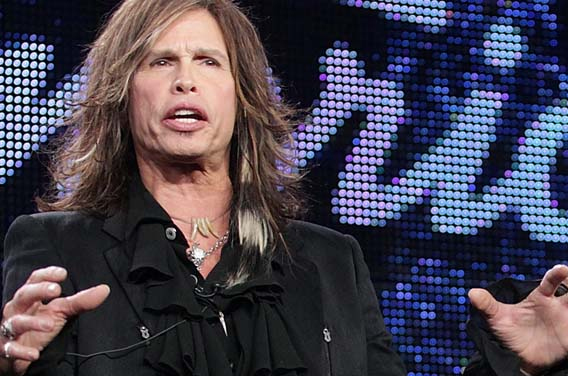Rick Hall on the Muscle Shoals Sound, Race, Today’s Blacks on R&B
On a recent tour stop of Rick Hall’s new book, the famed producer and other Muscle Shoals music icons shed light on their journey to FAME
Rick Hall doesn’t get the kind of glow and affection as music titans like Berry Gordy or Ahmet Ertegun, but thanks to a very recent documentary — Greg Camalier‘s Muscle Shoals — he’s finally starting to get his propers.
As the founder and proprietor of the Muscle Shoals-based FAME Studios, Hall is accredited in putting out a number of hit soul records in the 1960s and ’70s and even giving a co-credit in giving birth to the origins of southern rock. To some that understand the Alabama-bred legend, he’s much like an enigma when compared with equal contemporaries. Many of those who are still living, who started out with him, have entered into a world of retirement. Hall doesn’t know the meaning of slowing down. The same can be said to the Swampers, the famous nickname given to the studio’s fleet of musicians. To their credit, those musicians have appeared on over 75 gold or platinum hits.
Hall is currently making his rounds promoting his new autobiography, The Man From Muscle Shoals: My Journey From Shame to Fame. On a recent tour stop at Birmingham’s Altamont School, Hall was joined by fellow members of the Swampers for a panel discussion that felt more like a town hall meeting. Members of the audience were encouraged to ask random questions while the moderator — Daron Harris, a former student of the college preparatory academy – acted as the microphone-carrying emcee. Several clips from Muscle Shoals were played to familiarize Hall’s story with the crowd, but it wasn’t necessarily needed. The majority in the packed auditorium had already seen the critically-acclaimed film. But for those unfamiliar to the story and are fascinated by Alabama’s strong ties with music history, it was comforting to see and hear their reactions to the rock stars singing the praises of Muscle Shoals: Mick Jagger, Keith Richards, Bono, Alicia Keys, Steve Winwood, Jimmy Cliff and Aretha Franklin were all seen in those clips. And mostly all of them have had some connection with Hall’s FAME Studios in one or another.
Franklin’s first sides for Atlantic — “I Never Loved a Man (The Way I Love You)” and “Do Right Man, Do Right Man.” were actually recorded there, before she decided to record the rest of her Atlantic debut LP back in New York. She never returned, but almost every record up to ’69 featured session players from the Muscle Shoals crew.
As if they were revealing “behind-the-scenes” from a director’s cut, Hall along with guitarist Jimmy Johnson, organist Spooner Oldham and photojournalist Dick Cooper offered more details on the documentary and even revealed delightful stories about some of the important footnotes in the studio’s history. One of the biggest revelations of the evening was that Elvis Presley once expressed interest in recording at FAME Studios. “He told us that we’re going to go on tour and when we come back, we’re going to take a little break…and we’re going to come and do a full album there at your studios,” said Jimmy Johnson. “We kept it under wraps, but then he died.” After a sigh of disappointment could be heard throughout the room as the news blared from the sound system, Johnson put a cool breeze on their emotion: “But at least he wanted to.”
Unbeknownst to some, Presley did manage to cut a record at nearby Stax Records in Memphis, Tennessee in 1974, where he dug deep into the world of soul and wanted some of that Southern-fried success to rub off on him. In 2013, outtakes, vault tracks and more were packaged together in a deluxe box set (see review).
The legendary Muscle Shoals studio, still open for business and responsible for recent records by the Black Keys, Drive-By-Truckers, Candi Staton and Anderson East, is best known for cooking a number of big R&B hits for Atlantic and Stax in its heyday. It was a point that the guys hammered when asked about their musical influences and their jump into soul music. “We didn’t cut records like they did in New York or in L.A., or in Chicago and Miami. We cut records for the feel of the heart and soul of the record, so we worked and worked and kept working until we thought we had a hit record.” As Hall continued to talk about his career, lots of wisdom and industry advice was shared with the audience.
About radio:
“If you don’t get enough airplay [and] if people don’t hear it, you can’t sell records.”
On race and “black” music:
“We were color blind. We’ve always been color blind. We cut more records on black people than any other people in the world. And the reason was because we all loved black music. We all loved R&B. We all loved jazz. That’s the kind of stuff we all grew up on.”
Why R&B?:
“I was asked on a radio show why I cut so many records on black artists. I know what my reasons were. I wanted to make money. I wanted to make lots of money. I wanted to make money quick.”
The lack of appreciation for FAME from the younger generations of African-Americans:
“I want to know why black people don’t come to these functions. I want somebody to answer that question for me. Only four or five people are black in the audience. We were there from the beginning [of R&B].”
 FAME was legendary for producing sizable soul and R&B hits, but they also had their share of pop hits — the most prominent being the Osmonds’ “One Bad Apple,” which was certified gold and landed at number one on the pop charts in 1971. But one lesser known fact from Hall’s lips reverberated across the room like a hot knife through butter. “Southern rock was born at FAME,” he said. He brings up a 1969 session with Wilson Pickett when the fiery soul singer put his spin on McCartney/Lennon’s “Hey Jude.” Hall’s account of the story ushered in a series of laughs when he mentioned that Pickett kept singing “Hey Jew.” Apparently, his Southern drawl or his lack of knowledge of the Beatles’ hit got the best of him. On that landmark session was guitarist Duane Allman, who set forth a dynamic blues-driven performance towards the closing minutes of the song. In that moment you can hear the birth of southern rock. “At the end of the song, if you listen to it, you will hear it,” Hall said. “Duane’s guitar went crazy. So did Pickett.”
FAME was legendary for producing sizable soul and R&B hits, but they also had their share of pop hits — the most prominent being the Osmonds’ “One Bad Apple,” which was certified gold and landed at number one on the pop charts in 1971. But one lesser known fact from Hall’s lips reverberated across the room like a hot knife through butter. “Southern rock was born at FAME,” he said. He brings up a 1969 session with Wilson Pickett when the fiery soul singer put his spin on McCartney/Lennon’s “Hey Jude.” Hall’s account of the story ushered in a series of laughs when he mentioned that Pickett kept singing “Hey Jew.” Apparently, his Southern drawl or his lack of knowledge of the Beatles’ hit got the best of him. On that landmark session was guitarist Duane Allman, who set forth a dynamic blues-driven performance towards the closing minutes of the song. In that moment you can hear the birth of southern rock. “At the end of the song, if you listen to it, you will hear it,” Hall said. “Duane’s guitar went crazy. So did Pickett.”
When one of the school’s students raised the question about who each of their greatest artists were, Sonny Oldham replied with Chuck Berry. “When I heard “Johnny B. Goode,” I knew what I wanted to do,” he said.
Hall’s autobiography, The Man From Muscle Shoals: My Journey From Shame to Fame, is now available in bookstores nationwide and at Amazon.com. It has been featured at Amazon.com for being a No. 1 new release. Kindle and other e-book versions are also available.





















































